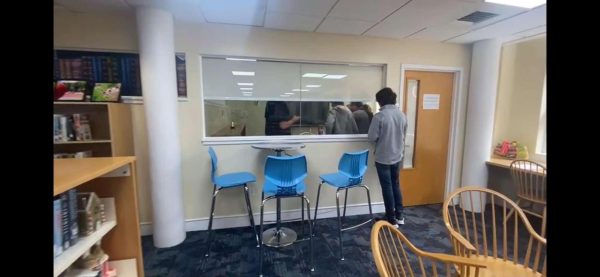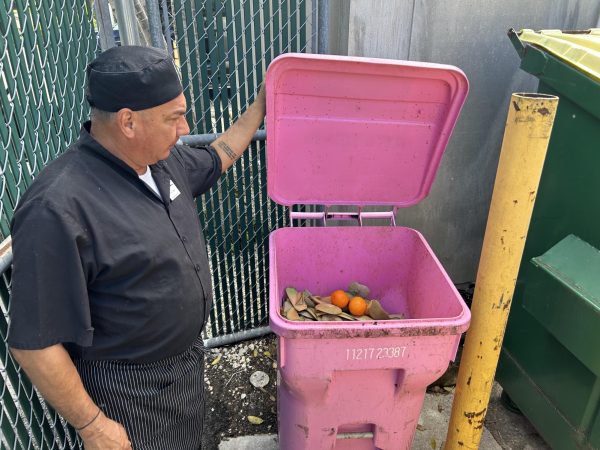RE students seek expansion of mental health support systems and campus programming
Stress is a constant at Ransom Everglades — at least according to many members of the student body, who have expressed concern about their lack of sleep, demanding activities, and strenuous workloads. But students, teachers, and administrators seem to hold different views on what causes it, how much of a problem it is, and how to tackle it.
At RE, students have expressed a variety of concerns about things that impact their stress levels. SGA President Henry Schermerhorn ’19 and Juanchi Roca-Paisley ’19 admitted to doing significant amounts of homework and college application work late into the night, suffering great sleep loss. Like others, they experience this quite frequently.
While some choose to accept sleep loss as inevitable, others have noted the need to sacrifice opportunities in order to avoid that problem.
“I chose not to do a fall sport,” said Marlon Ly ’20. “I’m already noticing the amount [of homework] I’m having every night is a lot to keep up with for people that are also doing sports or extracurricular activities.”
Some teachers expressed a different perspective, however, noting that some amount of stress is inevitable in a rigorous academic environment.
“I often think of how I may be adding to students’ workloads,” said Ms. Jenny Carson, who teaches psychology. But she explained that she tries “to keep a certain sense of rigor, because while stress itself seems to have a negative connotation, it is stress that keeps us working at top performance level.”
Even with stress being used as a natural motivator, the well-being of students remains one of the school’s priorities, as both Head of Upper School Mr. Ken Mills and Dean of Students Ms. Lindsay Danielson made clear.
“It’s more about entering into a conversation and acknowledging that people feel like they have a lot going on,” said Ms. Danielson. In a speech during a Tuesday assembly, Ms. Danielson emphasized support from others as an integral part of avoiding overwhelming life problems. Simply taking the time to listen to someone is certainly one way to help that person, she said.
Aside from social interactions, the school has implemented programs and assemblies in order to address various mental health topics.
For example, the Health Information Project (HIP) has been active in the RE community for several years; it revolves around upperclassmen teaching underclassmen about a variety of topics, including mental health.
Ms. Isis Perez-Gonzalez, Director of Counseling, commented on the effect of these student-to-student interactions, explaining how they “make it even more appealing to students to be able to hear about how others feel about topics like drugs [and] safety.”
Matthew Rocha ’19, a senior HIP mentor, pointed out that “HIP reminds those with these mental health issues that they are not alone, nor will they ever be alone.”
As a HIP teacher, he said he witnesses the effectiveness of student-student classrooms first hand: “Kids are naturally more responsive and eager to listen to fellow kids.”
However, while the HIP curriculum does discuss methods for seeking help, some students said they felt it fails to recognize the difficulty of doing so.
“It’s tough to talk about mental health,” said Thomas Heisel ’21. “It takes a lot of courage to ask for help, especially in a culture where it’s often considered weak to do so.”
“A lot of people choose to go to substances because they can’t cope with how they feel on their own, and that’s something our school hasn’t entirely acknowledged,” said Maddy Bagnall ’21.
Roca-Paisley agreed, saying that “HIP was a move in the right direction but students do not feel properly served.” He said that the administration is certainly caring, but has not implemented the proper reforms to truly be “proactive” regarding the mental health issues on campus.
However, in addition to programs like HIP and Freedom from Chemical Dependency (FCD), other changes on campus over the past few years also suggest some new attention being paid to the issue of stress in particular. For example, when the switch to a semester schedule in place of quarters and removal of the semester exam system were implemented, it was presented to students as a means of reducing stress.
Despite the criticisms, Ms. Carson stated that she has “heard a lot of really positive feedback from students” and explained how the administration is in the process of perfecting and changing the old system. According to her, these changes aim to provide a balance that “both challenges our students and removes overburdening stress.”
In addition to HIP, she pointed to FCD as another example of the school’s efforts in these matters. Ms. Carson explained how FCD is an effective method of educating students in making healthy choices. FCD doesn’t just oppose drug and alcohol abuse, but attempts to tackle the root of the problem.
Ms. Danielson and Mr. Mills both emphasized that the school views open communication as one of the most effective solutions to mental health problems — something that is addressed through frequent advisory discussions and interactive assemblies.
Schermerhorn agreed. “I think presentations by the administration are helpful, but I don’t think they always start a discussion among the students themselves,” he said. “Open dialogue is the most important concept on campus.”
Ms. Carson said she encourages students to reach out and advocate their positions.
With regard to her AP Psychology class, she stated, “I invite feedback from students and try to consider that constructive feedback . . . to find the best middle ground while still maintaining rigor and intellectual engagement.”




